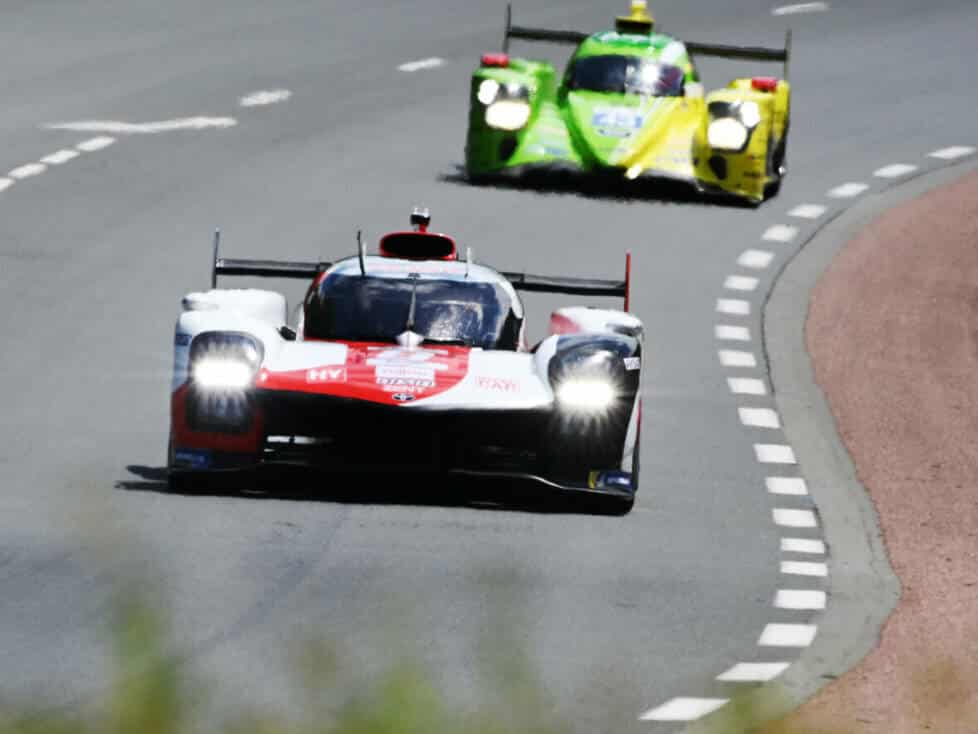The many manufacturers and teams in the hypercar class are putting LMP2 in a bind – But Oliver Jarvis sees a solution to the dilemma
In the World Endurance Championship (WEC) and at Le Mans, everything is set for the new, golden era of endurance racing. But manufacturers like Peugeot, Ferrari, Porsche and Lamborghini are still waiting. Only gradually are they joining in with their hypercars and LMDh prototypes.
Only then will a clearer picture emerge for the remaining classes and the future structure of the series. Currently, with Hypercar, LMP2, GTE-Pro and GTE-Am, four categories are represented in the WEC races, but that does not have to stay that way. And so there is currently also a question mark behind the future positioning of the LMP2 class.
“The [FIA and ACO] have to wait and see what the actual pace of the hypercars is. Not the current pace, but what the pace will be when Porsche comes in,” Oliver Jarvis therefore advises. “Then they have to decide where the LMP2 belongs. Because we have these incredible cars, but we deteriorate them every year, and that’s a shame really. “
“They’re not reaching their full potential, which is what people actually bought the cars for.” The Briton, meanwhile, knows both sides. He was part of Audi’s LMP1 squad for years and has competed in the smaller prototype class for years. In 2017, the first year of the current generation LMP2, he almost won at Le Mans with Jackie Chan DC Racing.
LMP2 needs to be increasingly curbed
Meanwhile, partly because many manufacturers are still working on their hypercars and LMDh prototypes, the start of the next generation of LMP2 has been pushed back. Jarvis calls the move “absolutely sensible for all teams for cost reasons”.
He continues: “I think it’s also the right thing to do from a sporting point of view to decide where the LMP2 class belongs in the hierarchy in terms of lap time.” This classification is indeed still a big problem at the moment. Last year in the LMP1 class, the small prototypes were still free to drive up at Le Mans.
Paul di Resta thus managed a lap time of 3:24.528 minutes in the hyperpole session at the 24h of Le Mans 2020. Toyota driver Kamui Kobayashi only beat this time by 0.6 seconds the following year in the Japanese team’s new hypercar. In 2022, the pole time was only 0.1 seconds below the LMP2 track record. So the smaller prototype class has to be slowed down more and more.
LMP2 in future only in continental series?
And there is another problem for the LMP2 class: so many interested manufacturers and teams are pushing towards Le Mans and into the hypercar class that it is questionable whether there will be room for this category at all in the long term.
Especially since the GT3 class coming in 2024 with the mandatory Pro-Am teams is likely to provide a boom for its part. Thus, the LMP2 class could be pushed into the continental Le Mans series in the future. There, however, Jarvis sees a golden future for them.
“In the next three or four years, when the grid will change with GT3, you might get a bigger grid in the ELMS and the AsLMS,” he surmises. And he is sure: “These cars will not disappear. For me, there is still a market for LMP2 cars. “





